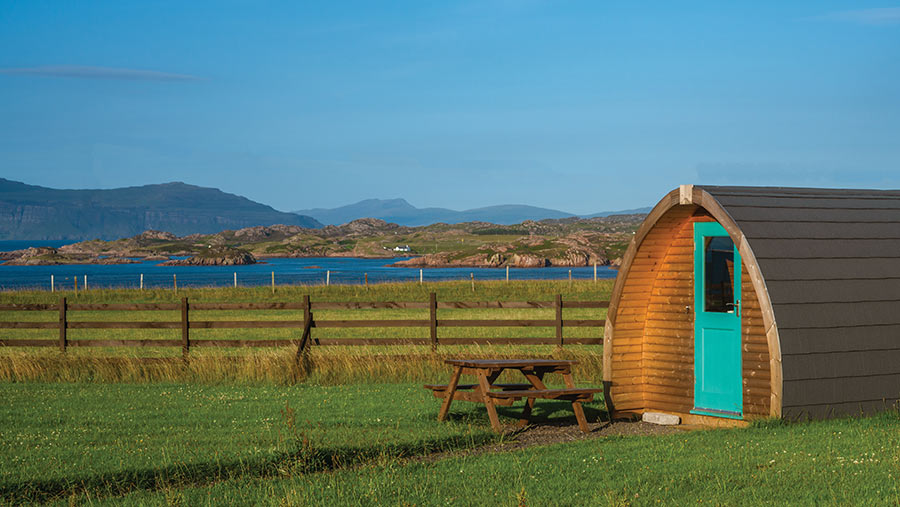Scottish licensing plans ‘devastating’ for rural businesses
 © Adobe Stock
© Adobe Stock Plans for a licensing scheme for short-term lets in Scotland are not “fit for purpose” and will have a devastating impact on the country’s agritourism sector unless there are significant changes, according to Scottish Land & Estates (SLE).
The Scottish government has just finished consulting on revised proposals to introduce a licensing scheme in response to problems caused by the growth in Airbnb-style lets.
Local residents in some areas have complained that short-term lets are leading to unreasonable noise levels, anti-social behaviour and a loss of residential housing stock for local people.
See also: Research highlights key trends in farm-based holidays
There is also concern that properties are being rented out in an unregulated market, so may pose a safety risk to visitors or neighbours.
Shaped by problems
But in response to the consultation, SLE has accused the government of coming up with proposals that have been shaped by problems experienced mainly in urban areas that fail to reflect the reality in most rural locations.
The new rules will affect anyone offering holiday cottages, glamping sites and traditional bed and breakfast accommodation – regardless of their location.
The SLE said despite the government introducing some minor revisions and clarifications to the rules, they remain disproportionate, heavy handed and a threat to the livelihood of thousands of operators.
A recent survey of members of the Association of Scottish Self Caterers suggests it could lead to the closure of up to 49% of self-catering holiday accommodation units.
The government’s suggestion that licensing fees would be in the region of £300-£500 is an underestimate, as local authorities are already suggesting they may need to charge more than £2,000 to licence a three-bedroom property, said SLE.
Property owners would need to apply for a licence and then pay an additional fee for it to be renewed every three years.
Operating without a licence could result in a fine of £50,000 or imprisonment.
Impact on wider rural sector
There would also be indirect negative effects on other businesses such as pubs, restaurants, and local shops and attractions.
In addition, the SLE said the proposals would hit farmers who “let to work” when they are employing casual workers.
“We have members who have advised us that they let out accommodation to their contracted night lamber three to four weeks a year, and occasionally for a similar length of term for additional contracted workers at harvest time,” said Simon Ovenden, SLE policy adviser.
“We are advised the properties are in good condition and meet the required health and safety standards, but licensing and potential planning fees could be prohibitively expensive, making renting for such a short period unviable.”
The SLE said the plans as they stand are a blunt tool to resolve a perceived and localised problem of amateur operators in Edinburgh, rather than being an appropriate tool for all Scotland.
Registration scheme
Mr Ovenden said the introduction of a simple registration scheme would be a better solution.
“This would allow proper enforcement of existing health and safety standards and appropriate planning policy that prioritises housing development for residential use without excessive bureaucracy and spiralling costs,” he said.
“These proposals come at an awful time for many rural businesses. The Covid-19 pandemic has devastated Scotland’s tourism industry, and at a time when the Scottish government should be supporting this vital sector, these proposals could mean the end for many rural businesses.”
But the Scottish government has said it remains committed to introducing the scheme and it expects licensing authorities to be ready to receive applications by 1 October 2022.
The deadline by which all short-term lets must be licensed is currently 31 March 2024.
